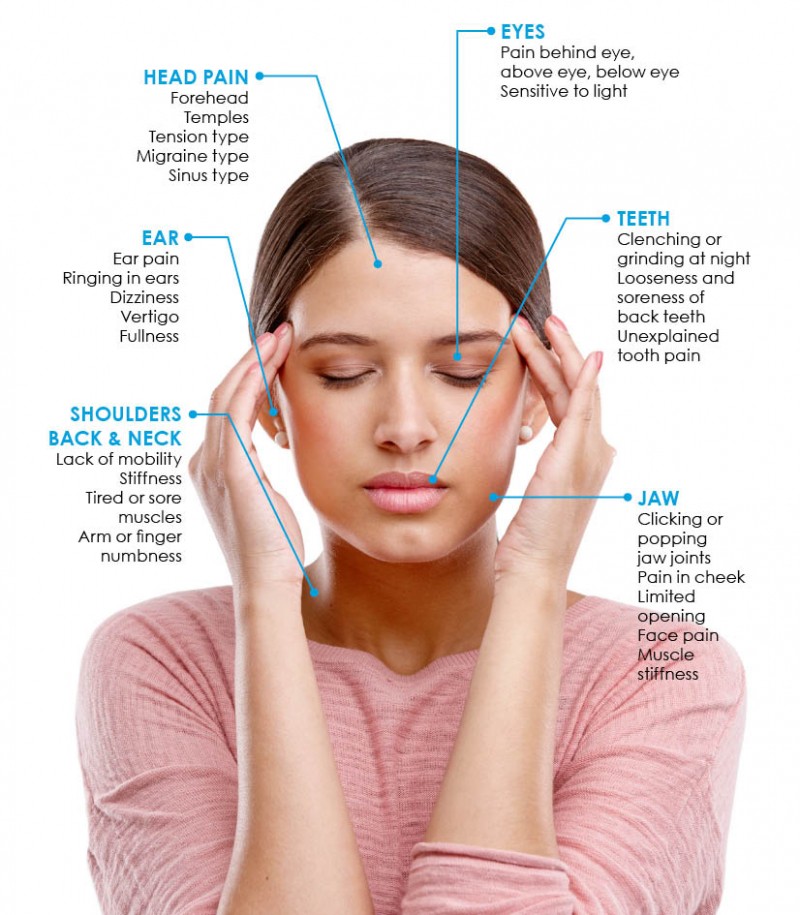TMJ Treatment
TMJ disorders occur when something goes wrong with your jaw joints and jaw muscles. Oftentimes, this happens because of a jaw injury, inflammation such as with arthritis, or overuse.
Symptoms of TMJ Disorder
Signs and symptoms of TMJ disorders may include:
- Pain or tenderness of your jaw
- Pain in one or both of the temporomandibular joints
- Aching pain in and around your ear
- Difficulty chewing or pain while chewing
- Aching facial pain
- Locking of the joint, making it difficult to open or close your mouth
TMJ disorders can also cause a clicking sound or grating sensation when you open your mouth or chew. But if there’s no pain or limitation of movement associated with your jaw clicking, you probably don’t need treatment for a TMJ disorder.






Other ways to manage your TMJ pain
TMJ pain may also be managed with simple lifestyle changes. You may wish to:
- eat a soft diet to allow the TMJ to relax
- avoid chewing gum
- avoid biting your nails
- avoid biting your lower lip
- practice good posture
- limit large jaw movements, such as yawning and singing